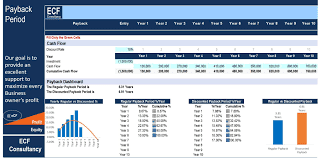Types of Real Estate Valuation Methods
Valuing a property is the necessary foundation before investing or buying a particular real estate. Some other reasons for real estate valuation are taxation, property insurance, and property listing. You must first establish the property cost before making related financial decisions.
There are different categories of real estate properties, such as residential, commercial, and industrial properties. Depending on your purpose and the kind of property you are evaluating, you can use various real estate valuation methods. Let’s discuss some of them below.
1. Replacement Value
Replacement Value is the cost needed to buy the land and construct the property from scratch. It is a suitable valuation method when you want to buy an existing property. It can help you assess how much is the maximum price you can pay for that property. If it is higher than your Replacement value, you might be better off building the property.
Other considerations are the state of an existing property, how much it will cost to improve, and the average estimated useful life.
2. Sales Comparison
Sales Comparison uses current marketed comparable property and utilizes its multiples and ratios to compute evaluated real estate value in the same target area. This value reflects how much the market is willing to pay for the same property.
If data for comparable is available, Sales Comparison helps assess the market value of the real estate. However, be cautious in using this method and make some cost adjustments since some factors are not precisely the same between the two properties.
3. Capitalized Earnings
Another valuable method for real estate valuation is Capitalized Earnings. It is computed by dividing the Rental Income over the Gross Capitalization (Cap) Rate or Net Capitalization Rate. The Net Cap Rate considers the Operating Costs while the Gross Cap Rate does not. Since data or operating costs are not widely available, the Gross Cap Rate is widely used. Cap Rate represents the expected return of the real estate industry.
4. DCF Analysis
DCF Analysis is more comprehensive and required significant assumptions in assessing property valuation. It considers the future cash flows generated, discount rate, and the time value of money. Future cash flows are discounted to their net present value using the discount rate, commonly WACC (Weighted Average Cost of Capital).
DCF analysis requires more in-depth analysis compared to other valuation methods. Still, investors and analysts prefer to use it for investment analysis and project evaluation since DCF analysis provides the projected free cash flows in today’s money, to be generated in a given period.
It is advantageous to use two or even more real estate valuation methods to give you a comprehensive assessment of the property and a different perspective.
Real estate valuation methods must be done before investing your hard-earned money into a particular real estate.



Comments
Post a Comment